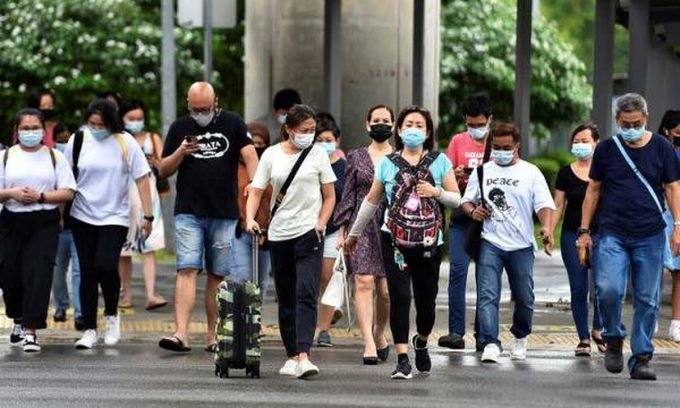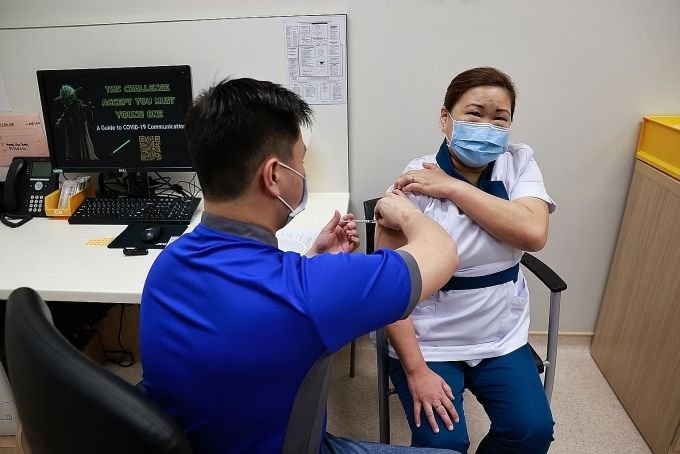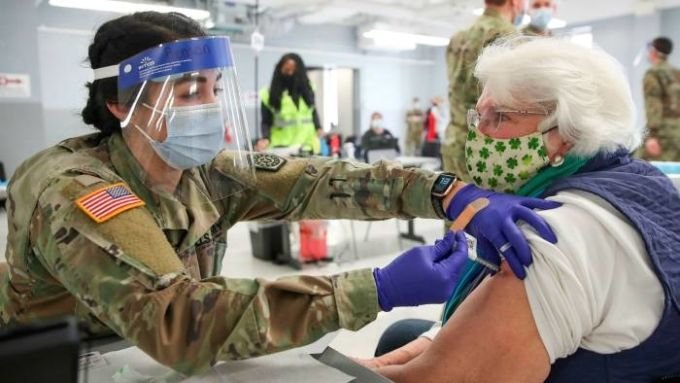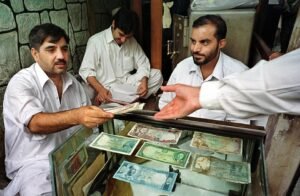
How do countries treat asymptomatic nCoV cases? 4
Singapore still applies centralized quarantine measures for people infected with nCoV, even though the patient does not show symptoms or is a mild case.
According to Dr. Satya P.K.
After 7 days, if the treatment facility confirms that the symptoms are only mild, or the clinical health is stable after treatment but is still positive for nCoV, the patient will be discharged from the hospital and transferred to a `care facility`.
Unlike serious cases, Covid-19 patients with mild symptoms do not need oxygen supplementation or special treatment.
Singaporeans were required to wear masks when going out during the outbreak of community infection in May. Photo: Reuters.
`The majority of nCoV infections in Singapore have mild or asymptomatic symptoms. Most are transferred to community care facilities and can recover with minimal medical intervention,` Singapore Ministry of Health
As of June 30, the island nation still has 133 infected cases being monitored in the hospital.
With the progress of the Covid-19 vaccination program in Singapore, the island nation is shifting to a strategy of living with the pandemic.
According to biostatistics researcher Alex Cook and infectious disease expert Hsu Li Yang of the Saw Swee Hock School of Public Health at the National University of Singapore, centralized treatment of Covid-19 patients without distinction of severity
Although the old strategy proved effective in controlling the epidemic situation, maintaining it for a long time will create fatigue for society.
According to experts, the practice of isolating every case in a hospital or community care facility will no longer be necessary `once the vast majority of the population has been protected` by a vaccine.

Singapore organized vaccination for frontline medical staff in January. Photo: Straits Times
`A quick response to control the spread is key. However, a strong quarantine policy will make asymptomatic or mildly infected people hesitant to get tested or seek medical assistance,` Alex
Statistics from the Singapore Ministry of Health over the past 28 days on domestic infections show that 1% of Covid-19 patients who have received two doses of vaccine need oxygen supplementation during treatment.
For the group who received one shot of vaccine before being infected with nCoV, the rate of mild and asymptomatic cases was 92.9%, while 4.8% needed oxygen support and 2.4% needed ICU intervention.
`The decision to abandon quarantine and treat at the hospital for mild or asymptomatic cases requires patients to be responsible, self-isolate at home and rest, ensuring they do not transmit the disease to others,` said two experts.
Self-treatment at home for people with mild or asymptomatic Covid-19 infection has also been applied in many countries around the world.
According to recommendations from the US Centers for Disease Control and Prevention (CDC), people with mild cases of nCoV `should stay home unless medical care is needed`.
Emergency signals for Covid-19 patients needing hospitalization in the US include: Difficulty breathing, persistent chest pain or pressure, loss of consciousness, or pale skin, lips, and skin around the nails.
People in the same family need to limit contact with people infected with nCoV as much as possible, do not share objects, clean and disinfect common spaces regularly, and arrange separate toilets for infected people if available.

The National Guard supports a vaccination site in Illinois in April 2021.
In the UK, the National Health Service (NHS) notes that mild cases of Covid-19 do not need to be hospitalized, but you should still register for a health check online.
Infected people can contact the hotline for advice and intervention if symptoms appear such as: Unable to cope with symptoms at home, symptoms getting worse, fever not going away, and
In addition to the above emergencies, British health authorities only recommend that people infected with nCoV with mild symptoms self-treat and isolate at home.
The process of self-isolation and treatment at home can last more than a week, until the infected person recovers his health.
Measures for people with mild cases of nCoV to self-isolate and receive treatment at home are also applied in India, especially during the second wave of the epidemic, which overloaded the country’s health system.
Relatives living in the same household are required to self-isolate for 14-21 days and are responsible for keeping in regular contact with medical facilities.
However, similar to the current controversy in Singapore, self-treatment of mild symptomatic infections at home requires patients to have high self-awareness in complying with self-isolation regulations.
Many cases of infections not complying with quarantine regulations have been recorded in India during the outbreak, causing some local governments to apply curfew or social distancing measures to reduce the risk of infection.







